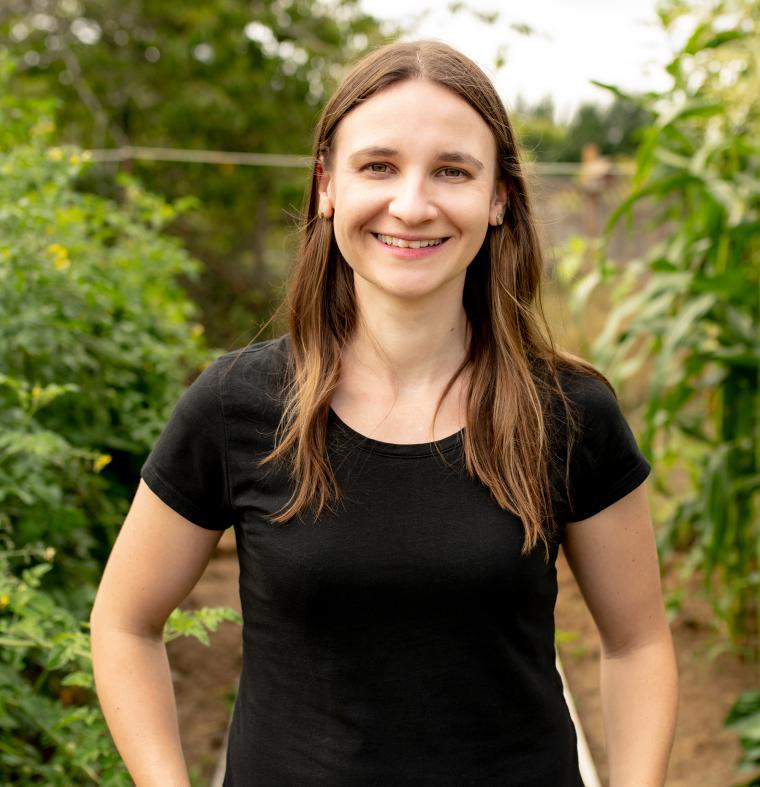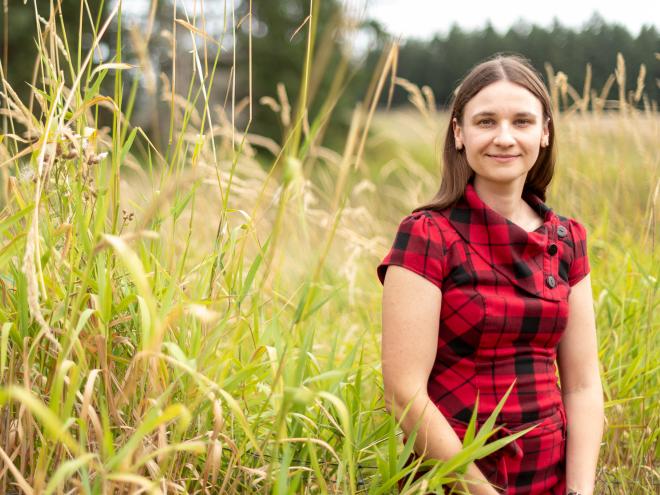Nanaimo-based doctor aims to increase professional happiness for physicians while providing the best care for patients
Dr Jessica Otte is a prime example of what a curious mind can do.
 A Nanaimo family doctor who specializes in elder care and palliative care, she cultivated her curious mind growing up on a hobby farm in Thunder Bay, Ontario. That mind took her first to pursue her education at UBC in Cognitive Systems, a Major integrating neuroscience, psychology, and artificial intelligence. Several summers working in the lab to pay for tuition, however, left Dr Otte feeling isolated and uninspired.
A Nanaimo family doctor who specializes in elder care and palliative care, she cultivated her curious mind growing up on a hobby farm in Thunder Bay, Ontario. That mind took her first to pursue her education at UBC in Cognitive Systems, a Major integrating neuroscience, psychology, and artificial intelligence. Several summers working in the lab to pay for tuition, however, left Dr Otte feeling isolated and uninspired.
As she considered her career options, she reflected back on her father’s mid-life pursuit to become an Operating Room nurse, and how his experience had introduced her to medicine and its human-centred focus. Shortly thereafter, Dr Otte found herself back in Vancouver, studying at the UBC Faculty of Medicine.
 Now well-established in Nanaimo and a mother of a two-year-old toddler, Dr Otte is a force of nature. She juggles a number of different clinical roles mostly revolving around elder and palliative care. She works with the palliative care team at Nanaimo General Hospital, does house calls for home-bound patients, helps support frail elders to be safely discharged home with comprehensive supports from the Emergency Department with the ED2Home program, and sees her own patients in long-term residential care facilities. She is also a Clinical Assistant Professor for the UBC Family Practice residency program and an educator with UBC’s Therapeutics Initiative.
Now well-established in Nanaimo and a mother of a two-year-old toddler, Dr Otte is a force of nature. She juggles a number of different clinical roles mostly revolving around elder and palliative care. She works with the palliative care team at Nanaimo General Hospital, does house calls for home-bound patients, helps support frail elders to be safely discharged home with comprehensive supports from the Emergency Department with the ED2Home program, and sees her own patients in long-term residential care facilities. She is also a Clinical Assistant Professor for the UBC Family Practice residency program and an educator with UBC’s Therapeutics Initiative.
If that is not enough, Dr Otte has recently accepted the position of Chair for the Doctors of BC’s Council on Health Economics and Policy (CHEP), which she has participated on for the last six years.
So why does Dr Otte find time to fit in CHEP work in addition to her busy workload as a primary care physician? She’ll explain that below, in her own words.
How did you become interested in applying for the CHEP?
Providing one-to-one care for patients is rewarding, but also frustrating. Many patients face barriers to health that cannot be fixed with medication, a referral, or even an empathetic conversation. The design of our communities and health systems plays a far greater role in determining health than does the clinical work of physicians, so I feel an interest and responsibility to contribute to change at these higher levels.
You are one of just three women to chair CHEP. What words of advice would you give to other women about joining a Doctors of BC committee?
Do it! That sounds simple, but you probably have a lot to offer. If you don’t feel represented, it may be because you aren’t. The demographics of those practicing medicine, as well as the way we are expected to practice, is rapidly changing, so applying old ways of thinking will not serve our profession. To become the architects of a system which provides best care to patients and joy for physicians, we need new and contrasting voices.
What is biggest reward you get from participating in committee work?
It’s the feeling of being useful. I love the geriatric and palliative focus of my practice. It really feels like I’m “doing something” that makes a difference by listening to patients and supporting them to attain their goals in a patient-centred way, rather than around arbitrary test targets or guidelines that don’t fit with their needs. I see working in policy development as a way to bring the satisfaction of medicine back to colleagues by improving the conditions within which we work, and the care we are capable of delivering. The ultimate reward is being able to point to something and say, “We did that. We made an impact for British Columbians."
